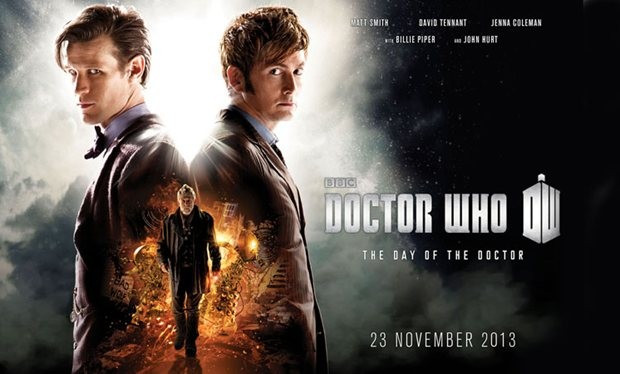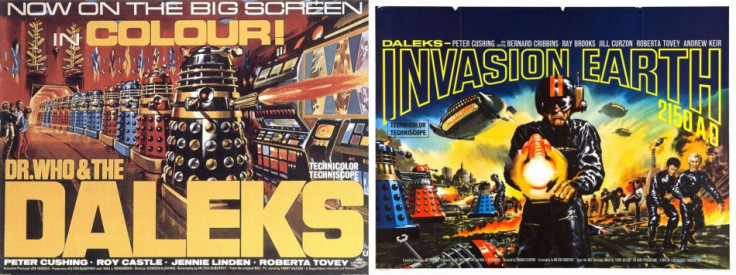Doctor Who 50th Anniversary – Is Showing the Special in Cinemas a Mistake?

The 50<sup>th anniversary of Doctor Who is a monumental occasion. The longest running science-fiction show in history will be celebrated in a 75-minute spectacular on Saturday (23 November) with incumbent Doctor Matt Smith teaming up with his popular predecessor David Tennant to battle John Hurt's The War Doctor, an evil version of the Time Lord.
Not only that, but to make as big a splash as possible, the episode (broadcast in 3D for the first time) will be simulcast on TV channels around the world, as well as in cinemas. But previous attempts by the show to achieve success on the big screen prove that moving to make Doctor Who more cinematic could be a dangerous direction.
This isn't the first time Doctor Who has been shown on the big screen. There were two widely forgotten movies starring Peter Cushing as Dr Who in the 1960s and, more notoriously, a disastrous attempt to bring back the show as an Anglo-American hybrid in the 1996 TV movie with Paul McGann.
It's clear that screening the blockbuster episode, The Day of the Doctor, in cinemas will raise the profile as well as revenue for the BBC, but turning this anniversary special in to a movie runs counter to the reasons Doctor Who has succeeded for so long in the first place.

The appeal of the show has always been that the Tardis can take you anywhere in time and space, from one week being on prehistoric Earth to the next a dystopian alien world. When the show began these were not broadcast as standalone adventures but serials composed of multiple episodes, allowing each place they visited and the story told within it to be fleshed out and given real depth and meaning.
Classics such as 1975 serial The Genesis of the Daleks, where Tom Baker's Doctor is presented with the ethical dilemma over whether to stop his nemeses from ever existing, or 1984 serial The Caves of Androzani, parable about Thatcherism starring Peter Davidson, would never have achieved their level of complexity in just one episode. Even in the rebooted show, the most critically acclaimed episodes are often two-parters, such as Paul Cornell's excellent Human Nature/Family of Blood.
And yet despite this, the show has been increasingly moving towards single instalments. All 14 episodes of season 7 were standalone adventures, with executive producer Steven Moffat exclaiming that he wanted to produce a mini-movie each week.
There's a popular misconception that with mysterious storylines involving Amy's baby and the identity of River Song, Moffat has made Doctor Who more complex and labyrinthine when in fact he has made it a lot simpler, pushing ahead spectacle and setting over character development. When Doctor Who was relaunched by Russell T Davies in 2005 it was supported by the soap opera background given to companion Rose Tyler, but the show today provides little development of its supporting characters. Instead, with its frantic and furious action sequences it resembles more a series of superhero films.
Change is inevitable if a television programme such as Doctor Who is to continue pulling in viewers, and the capers that Matt Smith finds himself involved in bare little resemblance to when William Hartnell first commanded the controls of the Tardis all those years ago. But when each episode works as a standalone story, championing style over substance, it gives the viewer less reason to invest in the programme and keep watching.
The 50<sup>th anniversary will doubtless prove a big success that cements the show's place in history both home and abroad but the BBC should not forget that watching Doctor Who has always been a journey, not an event, and that the reason the show has lasted half a century is not because of the places the Doctor can take you, but the people he takes you with.
READ:
Peter Capaldi Announced as New Doctor Who
© Copyright IBTimes 2025. All rights reserved.






















